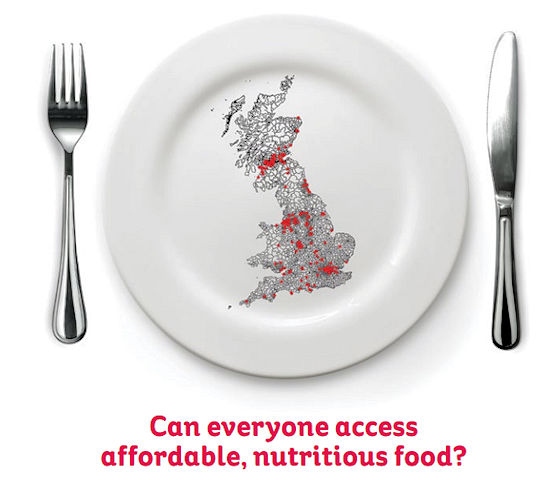Local areas included in map of Britain’s 'food deserts'
Date published: 12 October 2018

Photo: Kelloggs
One million people struggle to buy fresh food in Britain’s Food Deserts
A map of Britain’s poorest food deserts reveals the local areas in which households struggle to buy fresh food that they can afford.
Food desert areas in the borough were found to be Stanycliffe, in Middleton, where 35.1% of households are without a car, and Heap Bridge in Heywood, where 34.8% of households are without a car.
The first map of its kind was commissioned by Kellogg’s for a report about food access and affordability across Great Britain and reveals that 1.2 million people are living in deprived food deserts: a low-income area that has too few supermarkets or convenience stores selling food at an affordable price.
People living in these food deserts are likely to pay a higher cost for their weekly food shopping, having to go to more expensive small convenience stores with a limited stock of good value fresh products.
And 41% of these households don’t have a car, making it even harder to get to a wide range of good value food stores.
This could impact their health. One in eight people surveyed for the report say that not being near a supermarket offering healthy food at low prices stops them eating more healthily.
10% have even cut back on their own food consumption so that others in their family can eat. This increases to 14% among individuals with a household income of less than £10,000.
Megan Blake, expert on food security and food justice, commented on the research findings: “Every day food insecurity is on the rise in neighbourhoods across the United Kingdom. For those living in a food desert this can mean having to dedicate a portion of an already stretched budget toward transportation costs in order to secure food. It can mean having to carry their food shopping a long distance, a struggle that many older people living in food deserts experience."
The research goes on to suggest that online food delivery may not be the solution for people living in food deserts. One third of people on low incomes said they would never use online shopping.
A Kellogg’s spokesperson said: “These findings are especially worrying when a lack of fresh food can have a significant impact on people’s health and it seems to be the most vulnerable people who are impacted. This is a complex problem that will require organisations including local authorities and charities to work together to come up with solutions for local communities. There isn’t a one size fits all solution. We hope the food deserts map is the first step to getting these conversations going locally.”
Kellogg’s has shared the deprived food desert map with the government and has helped develop a pilot programme in its home Greater Manchester. Teaming up with food redistribution charity The Bread and Butter Thing it will address the issue of access to food in the deprived food deserts in Greater Manchester.
Do you have a story for us?
Let us know by emailing news@rochdaleonline.co.uk
All contact will be treated in confidence.
Most Viewed News Stories
- 1The plan for two new apartment blocks with an unusual car parking system
- 2Andy Burnham responds to harrowing reports from hospital nurses
- 3Police seize £48,000 in Rochdale property search
- 4The museum undergoing £8.5m transformation now needs a new roof
- 5Residents urged to be vigilant after spike in Shawclough burglaries
To contact the Rochdale Online news desk, email news@rochdaleonline.co.uk or visit our news submission page.
To get the latest news on your desktop or mobile, follow Rochdale Online on Twitter and Facebook.

